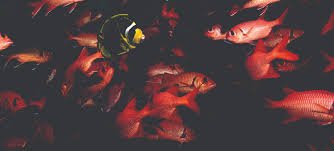
In Chinese culture, the dragon is not only a symbol of imperial power, prosperity, and strength but also plays a profound role in religious ceremonies and festivals dedicated to the worship of deities and ancestors. Throughout centuries of cultural and spiritual evolution, the dragon has come to represent both spiritual forces and the divine connection between humanity and the supernatural world. It has also become deeply entwined with rituals and festivals that honor the gods and pay respect to ancestors, who are believed to continue to influence the lives of their descendants.
This article explores the importance of the dragon in Chinese religious ceremonies and ancestor worship festivals, examining how its symbolism aligns with spiritual beliefs, cultural traditions, and the ritual practices associated with these significant events in Chinese society.
1. The Dragon as a Sacred Symbol in Chinese Spirituality
The dragon is a powerful and revered symbol in Chinese mythology, culture, and religion. It embodies strength, good fortune, fertility, and the balance between heaven and earth. The dragon is often depicted as a celestial being, capable of influencing natural elements such as water, rain, and winds. These attributes make the dragon an essential figure in religious rituals, especially those linked to fertility and agricultural abundance.
In Chinese culture, dragons are often associated with imperial power and divine rule. They are believed to be protectors of the people, offering safety, prosperity, and blessings from the gods. The Emperor of China was often referred to as the Son of Heaven, and the dragon symbolized his connection to the divine, granting him the authority to rule over the land. Even the imperial palace was adorned with dragon motifs, emphasizing its sacred association.
In the context of ancestor worship and religious ceremonies, the dragon plays a role as a mediator between the living and the divine realm. It represents the bridging of the earthly realm with the celestial and is believed to have the ability to carry offerings and prayers to the gods and ancestors in the heavens. As such, the dragon is an essential figure in rituals that seek to invoke divine favor or honor the spirits of ancestors.
2. The Dragon in Ancestor Worship Rituals
Ancestor worship is a central aspect of Chinese spirituality, deeply rooted in the belief that the spirits of ancestors continue to influence the lives of their descendants. By offering respect, prayers, and sacrifices, Chinese families seek to honor their ancestors and maintain a connection with their spiritual lineage. These rituals are usually performed during specific times of the year, such as during the Qingming Festival and the Chongyang Festival, when people visit the graves of their ancestors and offer food, incense, and symbolic gifts.
The dragon in these rituals represents the guiding force that links the ancestors with the living. In many ceremonies, a dragon statue or an image of the dragon is included in the altar setup. The dragon’s connection to water is especially significant, as it is believed to have the power to carry offerings such as water, rice, or wine to the heavens, ensuring that the ancestors are nourished and honored.
The dragon’s presence during these ceremonies is believed to help deliver prayers and wishes to the ancestors, facilitating the spiritual communication between the deceased and their descendants. In some cases, dragon images or statues are placed on family altars to invoke divine protection for the home and the family, ensuring prosperity, peace, and longevity. Dragon imagery is thus used to both honor the spirits of the deceased and protect the living family members from misfortune.
3. Dragon Symbolism in Chinese Religious Festivals
In Chinese religious festivals, the dragon plays an active role, both as a symbol and as part of the rituals that seek divine favor. These festivals are deeply tied to seasonal changes, agricultural cycles, and the belief that deities and ancestors influence the wellbeing of the community.
One of the most famous dragon-related festivals in Chinese culture is the Dragon Boat Festival (also known as the Duanwu Festival), which takes place on the fifth day of the fifth month of the lunar calendar. This festival is centered around dragon boat races, but its origins lie in honoring the ancestors and commemorating the life of the poet Qu Yuan, who drowned himself in a river as an act of patriotism. The dragon boat is seen as an embodiment of the dragon spirit, believed to chase away evil spirits and ensure the health and prosperity of the community.
During the Dragon Boat Festival, participants also make offerings to the dragon spirit, asking for protection and good harvests. The festival combines ancestral reverence with the celebration of nature’s elements, particularly water. The dragon’s association with water, rain, and fertility underscores the importance of water for agricultural life in ancient China, and the dragon is believed to help bring rain for a bountiful harvest.
In the Chinese New Year, the dragon dance is another religious performance that honors the deities and ensures the well-being of the family. As the dragon dances through the streets, it is believed to drive away evil spirits, bring prosperity, and bless the households with good fortune. The dragon’s association with the heavens makes it a powerful and sacred creature in Chinese culture, capable of influencing the outcome of the year and ensuring that it is filled with blessings.
4. The Role of the Dragon in Rituals for the Deities
In many of China’s religious rituals, the dragon also plays a role in honoring the gods or deities who govern the natural world and human affairs. These rituals may take place in temples, palaces, or private homes, depending on the nature of the ceremony and the status of the deity being worshiped.
One important dragon-related deity is the Dragon King (also known as Longwang), who rules over the waters of the seas, rivers, and lakes in Chinese folklore. The Dragon King is highly revered in both Daoist and Buddhist traditions. He is often called upon during rituals for rain and fertility, as he is believed to have control over water and weather patterns.
The Dragon King is an integral figure in temple rituals, particularly in regions where agriculture depends on consistent rainfall. In such rituals, worshipers may offer incense, sacrifices, and prayers to the Dragon King, asking for a bountiful harvest and protection against natural disasters. The presence of the dragon in these ceremonies symbolizes the deity’s power to control the forces of nature, ensuring the stability of the community.
In other religious rites, the dragon is used as a medium to call upon the gods and bring them into the physical realm, where they can intervene in the lives of the worshipers. The dragon’s symbolism as a mediator between the human world and the divine realm makes it a central figure in many rituals that seek blessings from the gods for prosperity, peace, and protection.
5. Dragon Symbolism in the Family’s Ancestral Shrines
The dragon also has an important role in the family’s ancestral shrine, where offerings and prayers are made to honor ancestors. In the rituals of ancestor worship, the family offers food, incense, and symbolic gifts to show respect for the deceased and to ask for their protection and guidance.
The dragon often appears in these shrines, especially in rural areas or traditional homes, where it is incorporated into the altar design. The dragon is seen as a conduit between the living and the deceased, helping to carry prayers and offerings to the heavens and ensuring the ancestors’ blessings for the family.
The presence of the dragon also connects the living with their lineage, reinforcing the importance of family and ancestral respect. By honoring the dragon, families also honor their ancestors and the divine forces that govern their lives.
6. Conclusion
In Chinese culture, the dragon is not merely a mythical creature but a powerful symbol embedded deeply in the spiritual and cultural life of the Chinese people. Its role in religious ceremonies, ancestor worship, and festivals highlights its importance as a mediator between the divine and the human realms, a symbol of strength, protection, and blessings. The dragon’s connection to water, rain, and fertility further reinforces its significance in rituals that seek to ensure prosperity, peace, and good fortune for families and communities.
From ancient traditions of ancestor worship to modern-day festivals and ceremonies, the dragon remains an essential figure in Chinese spiritual practices, bridging the past and the present while embodying the divine forces that continue to shape the lives of the Chinese people. Its presence in these rituals underscores the deep reverence and respect for both the ancestors and the gods, ensuring that their spirits continue to protect and guide future generations.





